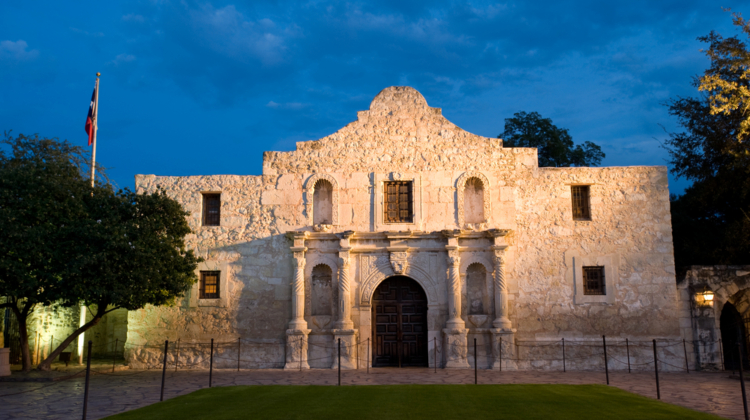
**The group of academics and historians labeled the term “a value charged word”**
For nearly two centuries, Texans have invoked the line “remember the Alamo” to commemorate those brave men who fought and died attempting to defend their fort and make a stand for Texas’s independence against a much larger Mexican army. Now an advisory committee to the State Board of Education in Texas is recommending that the word “heroic” be dropped from the official state-approved history curriculum describing the men who participated in this historic battle arguing that it is “a value charged word.”
The advisory committee is composed of educators and historians and has been charged with revising and streamlining the state’s history curriculum. The proposed change would be made to the seventh grade history standards, since Texas schoolchildren study the history of their state in seventh grade.
The current state history standards expect students to be able to:
“Explain the issues surrounding significant events of the Texas Revolution, including the Battle of Gonzales, William B. Travis’s letter “To the People of Texas and All Americans in the World,” the siege of the Alamo and all the heroic defenders who gave their lives there, the Constitutional Convention of 1836, Fannin’s surrender at Goliad, and the Battle of San Jacinto.”
If the advisory committee has their way, the phrase “heroic defenders” will be eliminated and the standard will be changed to state:
“Explain the issues surrounding significant events of the Texas Revolution, including the Battle of Gonzales, the siege of the Alamo, the Constitutional Convention of 1836, Fannin’s surrender at Goliad, and the Battle of San Jacinto and Treaties of Velasco.”
Also on the chopping block is Lt. Col. William B. Travis’s [letter](http://texasheritagesociety.org/The-Travis-Letter-Victory-or-Death-.html) “To the People of Texas and All Americans in the World.” In this letter, Lt. Col. Travis—the leader of the Texas forces under attack at the Alamo—pledged “I shall never surrender or retreat” and stated that if reinforcements did not come to his aid, he would “die like a soldier who never forgets what is due to his own honor & that of his country — **Victory or Death**.” The letter itself is just one paragraph long, less than 250 words, but if the committee has its way, the letter will be mentioned only as context and “teachers will spend less time on the analysis of the letter.” The purpose of eliminating the study of this letter is to streamline the curriculum and save classroom instruction time.
After news media reported on the proposed curriculum changes last week, the Texas Board of Education received hundreds of phone calls and emails and Texas Governor Greg Abbott tweeted to denounce the committee’s recommendation:
“Stop political correctness in our schools. Of course Texas schoolchildren should be taught that Alamo defenders were ‘Heroic’! I fully expect the State Board of Education to agree. Contact your SBOE Member to complain. [@TXSBOE](https://twitter.com/TXSBOE) [#txlege](https://twitter.com/hashtag/txlege?src=hash) #tcot”
Texas Land Commissioner George P. Bush, the son of former Florida governor Jeb Bush, also took to Twitter to weigh in. He wrote:
“This politically correct nonsense is why I’ll always fight to honor the Alamo defenders’ sacrifice. His letter & the defenders’ actions must remain at the very core of TX history teaching. This is not debatable to me.”
The chairwoman of the Texas Board of Education, Donna Bahorich, who was appointed by Governor Abbott, also defended using the term “heroic” to describe the Alamo’s defenders. “If there is ever a time you could say a set of folks were heroic, then this is the very definition of that,” she [commented](https://www.washingtonpost.com/education/2018/09/08/were-alamo-defenders-heroic-committee-suggests-removing-word-texas-curriculum/?noredirect=on&utm_term=.c5ab6e302d2a) to _The Washington Post_.
The committee’s proposed curriculum changes are up for a public hearing and a preliminary vote on Wednesday and a final vote on Friday, but the curriculum will ultimately be set during a final reading in November.

